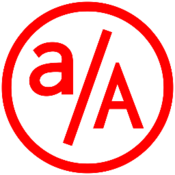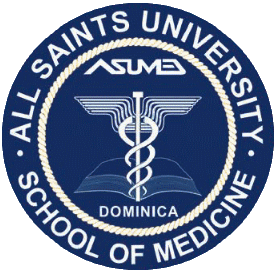 | |
| Established | 2012 |
|---|---|
| Location | , , 37°47′29″N122°23′37″W / 37.7913°N 122.3937°W |
| Website | http://www.appacademy.io |
App Academy is a San Francisco based coding bootcamp founded by Ned Ruggeri and Kush Patel in 2012.
 | |
| Established | 2012 |
|---|---|
| Location | , , 37°47′29″N122°23′37″W / 37.7913°N 122.3937°W |
| Website | http://www.appacademy.io |
App Academy is a San Francisco based coding bootcamp founded by Ned Ruggeri and Kush Patel in 2012.
App Academy describes their program as having a "job-guaranteed" [1] financing model where payment is deferred until after the completion of the course. App Academy publicly offers to waive payment for their program if a student does not find relevant employment within the first year of completing the course. [2] The median starting salary for graduates starting cohorts in 2018 and accepting a full-time offer in San Francisco or New York City (within the following 12 months) was $101,000. [3]

App Academy, as of 2014, reported an acceptance rate of about 5%. [4] During the admissions process, students are required to complete introductory level coding work to show their programming potential. Applicants do not need to have prior coding experience. Students are, however, expected to complete preparatory work before the formal course begins. [1] The curriculum covers full stack web development and primarily focuses on Ruby on Rails, JavaScript, React, Redux, Flux, JQuery, and SQL. Students also take weekly assessments until the project portion of the course begins. Students who fail more than one assessment (score < 80%) are dismissed from the course. [3]
App Academy's '16-week' program is broken into 3 sections with over 500 hours of formal instructional time.
Weeks 1-7: Introductory level programming concepts. Ruby, Rails, and SQL. [5]
Weeks 8-11: JavaScript, React, Redux, Flux, etc. [6]
Weeks 12-16: Full stack projects, advanced algorithms and job search. The job search curriculum pertains to resume help, whiteboarding, technical interview training, and salary negotiation. Students are also required to work on their projects on-site for an additional 2 weeks after graduation. This increases the total commitment length to about 18 weeks. [7]
Students are given a lecture at the beginning of every session, with the majority of time being allocated to projects and pair programming. 2-3 teaching assistants are generally on-site to provide guidance as necessary. Due to wait times for assistance, students are encouraged to use their own resources. [8]
App Academy also offers a paid tutoring program (Bootcamp Prep) for potential applicants preparing for the admissions process. [9]

Ned Ruggeri and Kush Patel met at the University of Chicago, where Ruggeri studied Mathematics and Patel majored in Economics. Prior to App Academy, Ruggeri worked for Google on the search engine indexing team and Patel worked at a hedge fund in Mumbai. [10] In an interview with Patel, he explains the initial structure of App Academy, stating the need to teach "as much language and framework agnostic software development as we can." [11] Kush reported to Yahoo News stating the need to "give [students] real-world skills they can use and actually get them a job." [2]

Catalyst is an open-source web application framework written in Perl. It closely follows the model–view–controller (MVC) architecture and supports a number of experimental web patterns. It is written using Moose, a modern object system for Perl. Its design is heavily inspired by frameworks such as Ruby on Rails, Maypole, and Spring.
Heroku is a cloud platform as a service (PaaS) supporting several programming languages. As one of the first cloud platforms, Heroku has been in development since June 2007, when it supported only the Ruby programming language, but now also supports Java, Node.js, Scala, Clojure, Python, PHP, and Go. For this reason, Heroku is said to be a polyglot platform as it has features for a developer to build, run and scale applications in a similar manner across most of these languages. Heroku was acquired by Salesforce in 2010 for $212 million.

Zed A. Shaw is a software developer best known for creating the Learn Code the Hard Way series of programming tutorials, as well as for creating the Mongrel web server for Ruby web applications. He is also well known for his polemical views on programming languages and communities.
Altoros Systems is a software development company that provides products and services for the Cloud Foundry platform. Altoros contributes to development and evolution of this open source initiative as governed by the Linux Foundation.
The Roy J. and Lucille A. Carver College of Medicine is the medical school of the University of Iowa, located in Iowa City, Iowa, United States. The first medical college associated with the University of Iowa was founded in 1850, in the small town of Keokuk, Iowa, but the current Iowa City program can trace its roots to 1870. The program became notable as the first co-educational medical school in the United States, and was one of 22 original members of the Association of American Medical Colleges in 1876.

Codecademy is an American online interactive platform that offers free coding classes in 12 different programming languages including Python, Java, Go, JavaScript, Ruby, SQL, C++, C#, and Swift, as well as markup languages HTML and CSS. The site also offers a paid "Pro" option that gives users access to personalized learning plans, quizzes, and realistic projects.
Dev Bootcamp was an immersive 19-week coding bootcamp founded by Shereef Bishay, Jesse Farmer, and Dave Hoover in February 2012. It is designed to make graduates job-ready by the end of the program. Dev Bootcamp was headquartered in San Francisco, California, with additional locations Seattle, Chicago, New York City, Washington, D.C., San Diego, and Austin. It was acquired by for-profit education company Kaplan, Inc in 2014. Dev Bootcamp closed in 2017.

Code.org is a non-profit organization and educational website founded by Hadi and Ali Partovi aimed at K-12 students that specializes in computer science. The website includes free coding lessons and other resources. The initiative also targets schools in an attempt to encourage them to include more computer science classes in the curriculum. On December 9, 2013, they launched the Hour of Code nationwide to promote computer science during Computer Science Education Week through December 15, 2013.
Makers Academy (Makers) is a 16-week computer programming boot camp in London. It was founded by Rob Johnson and Evgeny Shadchnev in December 2012.

All Saints University School of Medicine, Dominica (ASUDOM) is a private medical school located in the Caribbean. The schools' campus is in Roseau, Dominica, and is administered from Toronto, Ontario. There is also an office in Chicago, Illinois.

MakerSquare was a provider of software engineering bootcamp based in Austin, TX, with additional campus locations in San Francisco, CA, Los Angeles, CA and New York, NY. MakerSquare provided a career-focused program that includes job training and employer outreach within its curriculum. In January 2015, MakerSquare was purchased by software engineering bootcamp Hack Reactor, and in 2016, all MakerSquare campuses were rebranded to share the Hack Reactor name.
Lighthouse Labs is a tech education company that offers 12-week boot camps for web development and data science, as well as part-time up-skilling courses, with locations across Canada. In previous years, they organized an annual free learn-to-code event, The HTML500, in partnership with Telus.
Hack Reactor is a software engineering coding bootcamp education program founded in San Francisco in 2012. The program is remote-only and offered in 12-week beginner full-time and 19-week intermediate full-time formats.
Fullstack Academy is an immersive software engineering coding bootcamp located in New York City. Students of the full-time flagship course learn full stack JavaScript over the course of a 13-week, on-campus program. Fullstack Academy offers beginner courses in JavaScript and front-end development, as well as a summer program for college-age students, and a part-time version of their full-time curriculum (Flex).
Coding bootcamps are intensive programs of software development. They first appeared in 2011.
ACT, Inc. is an American 501(c)(3) nonprofit organization, primarily known for the ACT, a standardized test designed to assess high school students' academic achievement and college readiness. For the U.S. high school graduating class of 2019, 52 percent of graduates had taken the ACT test; the more than 1.78 million students included virtually all high school graduates in 17 states.
Michelle Sun is a Chinese entrepreneur from Hong Kong. She founded First Code Academy, a K-12 coding school headquartered in Hong Kong which taught children 4 and up how to code and create mobile applications. The academy had presence in 6 different cities in Asia, including Hong Kong, Singapore, Taipei, Shanghai and Shenzhen. Teaching was given either in their school classrooms or in the firm's own offices.

Coding House was a coding bootcamp in Silicon Valley, California. The 14-week-long bootcamp taught students JavaScript and other technologies. Founded in 2014 by Nicholas James, it was ordered shut down in November 2016 by the regulatory agency California Bureau for Private Postsecondary Education (BPPE) for violating California law many times. BPPE denied Coding House's licensing application three times and found that Coding House had engaged in false advertising.
Trilogy Education Services is a New York City-based technology education company that offers non-credit technology training programs, colloquially known as coding bootcamps, through affiliate universities. In-person courses are held on the affiliate university campus. Revenue from the tuition is shared with the affiliate university.
Bloom Institute of Technology, also known as BloomTech, is a for-profit massive online course. When it launched in 2017 under the name Lambda School, it gained attention for being a coding bootcamp that offered income share agreements as a method of financing. Following several layoffs and cost cutting measures, it transitioned from a bootcamp model to MOOC, and refocused on traditional student loans. It currently faces several lawsuits for deceptive marketing, allegedly lying about how many students find jobs, among other issues.